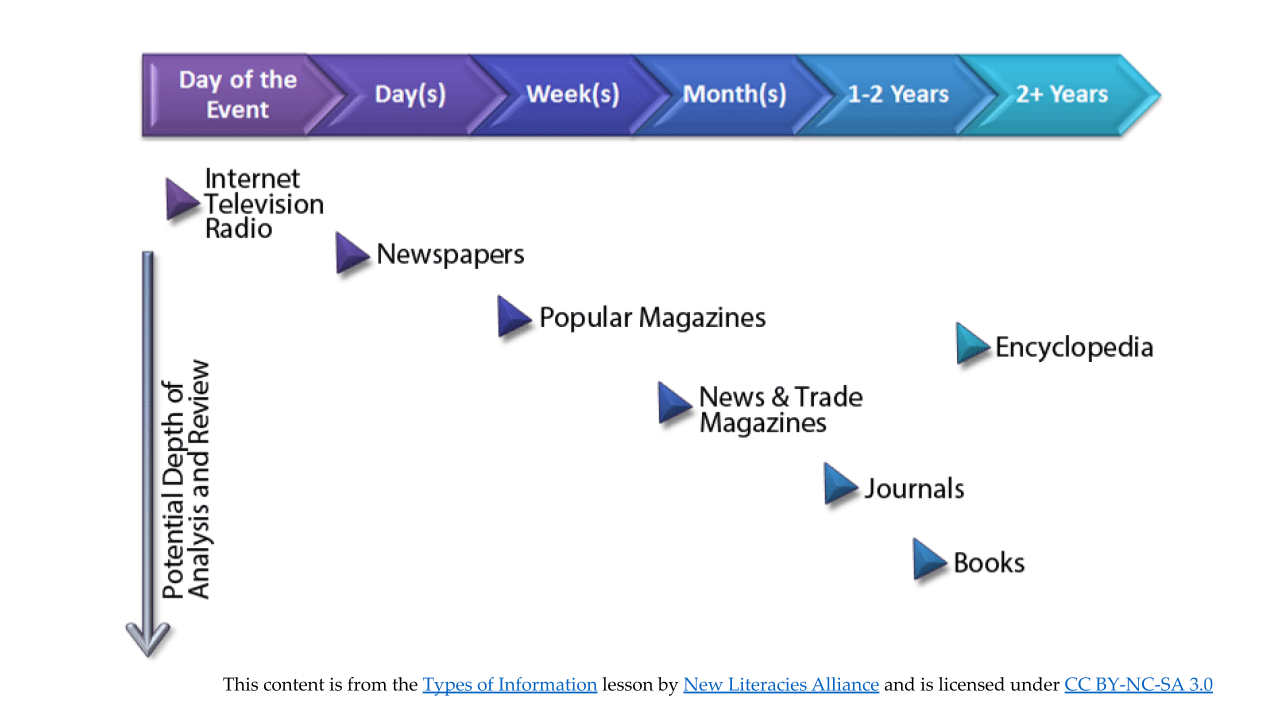Types of Information
Information is created for different purposes over time. While initial information is created to inform and pique interest, information created weeks, months, or years after an event often offers an analysis of the event, its impact, and theories on why it happened. Effective researchers decide what kind of information will best answer their questions.
Think back to the research question you created as you worked through Getting Started with Research. Using the timeline in the image above, which type of resource might best answer your research question? Will your question best be addressed using information created to inform and pique interest, or information which offers an analysis of the event, its impact, and theories on why it happened? Let’s consider what you already know about the characteristics of information and where to find certain kinds of information — knowing the intended purposes of information sources can help you select popular or scholarly resources most likely to help you answer your question.
Scholarly sources are generally books or peer-reviewed articles. They are written by specialists, for specialists, and target a narrow and specific audience. Navigate to Scholarly Articles to learn more about why and how to use scholarly resources.
Non-scholarly sources include popular sources and trade resources. Popular sources may be written by journalists or other non-specialists whose role is to summarize main ideas in an easily understandable format. Keep reading to learn more about why and how to use popular resources.


